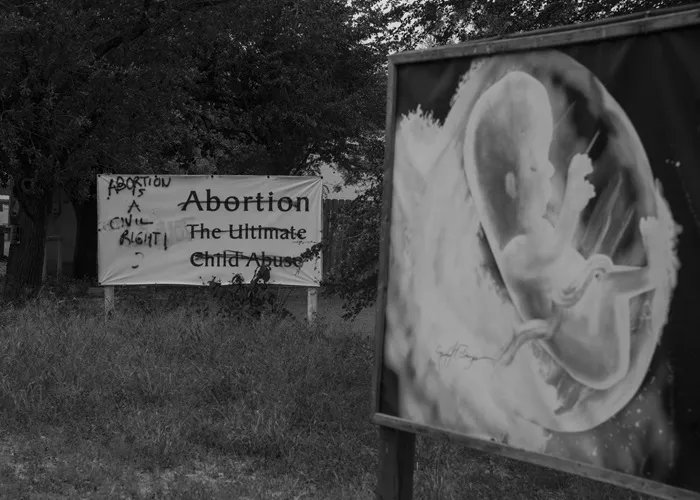Recent research published in Science Advances highlights the significant mental health implications of stricter abortion regulations across the United States, particularly affecting low-income individuals. Following the landmark Dobbs v. Jackson Women’s Health decision, which devolved abortion regulation to state legislatures, states implementing more stringent gestational limits saw an increase in reported mental distress among their residents.
Analyzing data from the National Household Pulse Survey spanning two years and comprising over 60,000 respondents per survey wave, researchers found a concerning rise in anxiety, worry, disinterest, and depression in states with newly imposed gestational restrictions and abortion bans. Compared to pre-Dobbs levels ranging from 18% to 26%, there was an approximate 3% relative increase in self-reported mental health issues, indicating a clear impact of legislative changes on public well-being.
The aftermath of the Dobbs decision has led to a patchwork of state regulations, with 21 states enacting abortion bans or stricter gestational limits by July 2024. This legal landscape shift has forced many individuals, primarily women, to cross state borders in search of reproductive health services, highlighting the logistical and emotional burdens imposed by regulatory changes.
The research underscores that these sudden shifts in abortion access have disproportionately affected individuals of lower socioeconomic status and educational attainment. While impacts were evident across demographics such as gender, sexual orientation, age, marital status, and race, the study found that economic disparity played a pivotal role in exacerbating mental health outcomes. Wealthier and more educated individuals generally faced fewer barriers and associated stressors.
The study’s lead researcher emphasized the need for a comprehensive understanding of how abortion policy affects diverse segments of the population, urging policymakers to consider these disparities as they debate further restrictions. With potential federal actions looming, the study calls for nuanced approaches that safeguard reproductive rights while mitigating adverse mental health impacts.
Looking ahead, unanswered questions remain about why socioeconomic factors amplify the mental health toll of abortion restrictions. The study speculates that financial stress associated with pregnancy and abortion costs disproportionately burdens economically vulnerable individuals, compounding mental health challenges.
This study builds on prior research, including insights from The Turnaway Study, which documented similar mental health declines among women denied abortions due to gestational limits. By broadening the scope to include a diverse population, this research contributes valuable insights into the broader societal impact of abortion policy changes.
As debates over reproductive rights continue nationwide, this study serves as a critical reminder of the far-reaching implications of abortion policies on mental health, urging a holistic approach that considers the well-being of all Americans affected by these decisions.
Related topics:
- Is Autism Spectrum Disorder (ASD) a Mental Illness?
- VA Health Chat Now Available Across All 18 VISNs
- Health Care Systems Struggle After Hurricane Beryl’s Devastation


